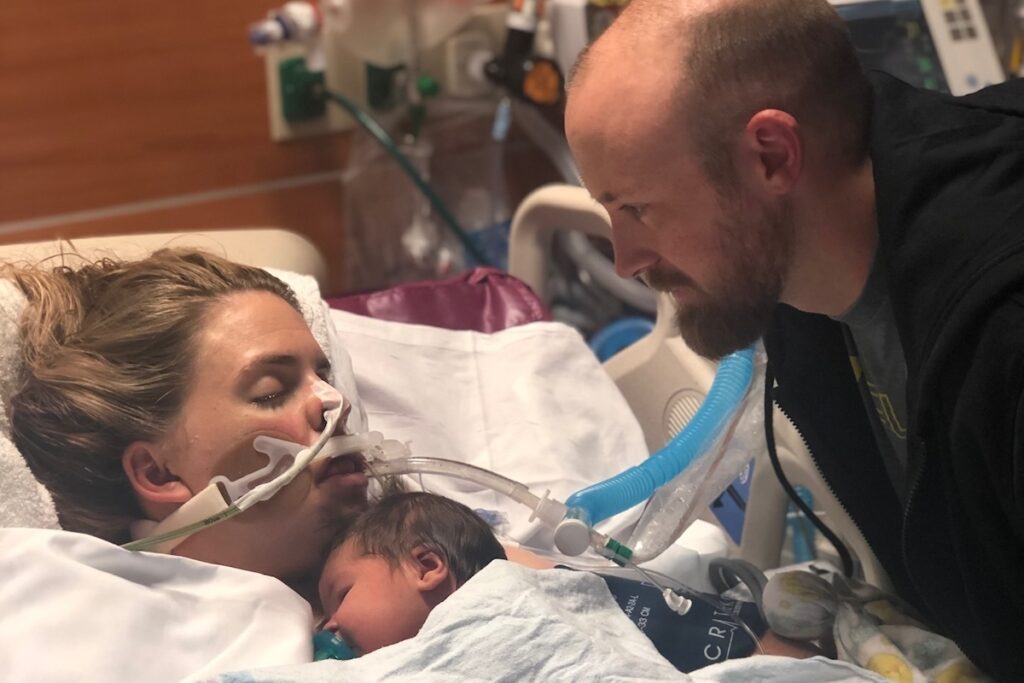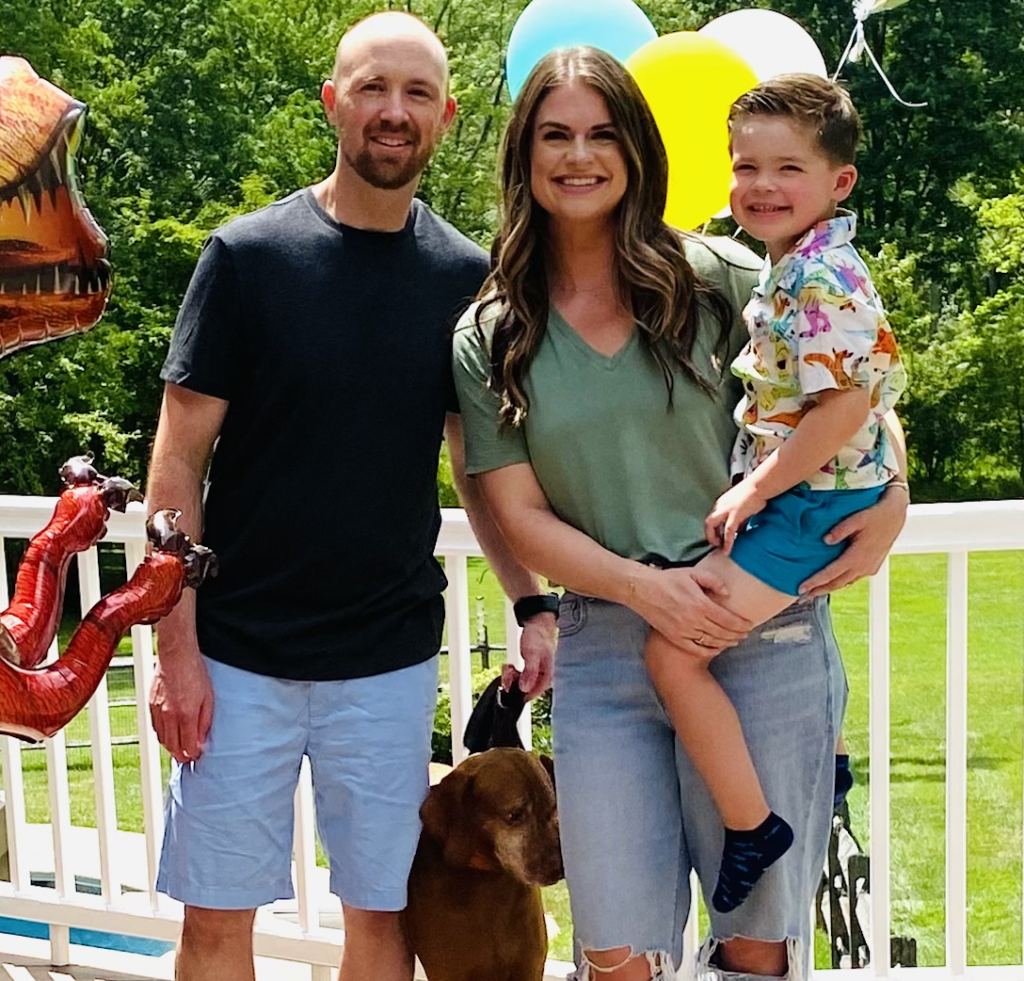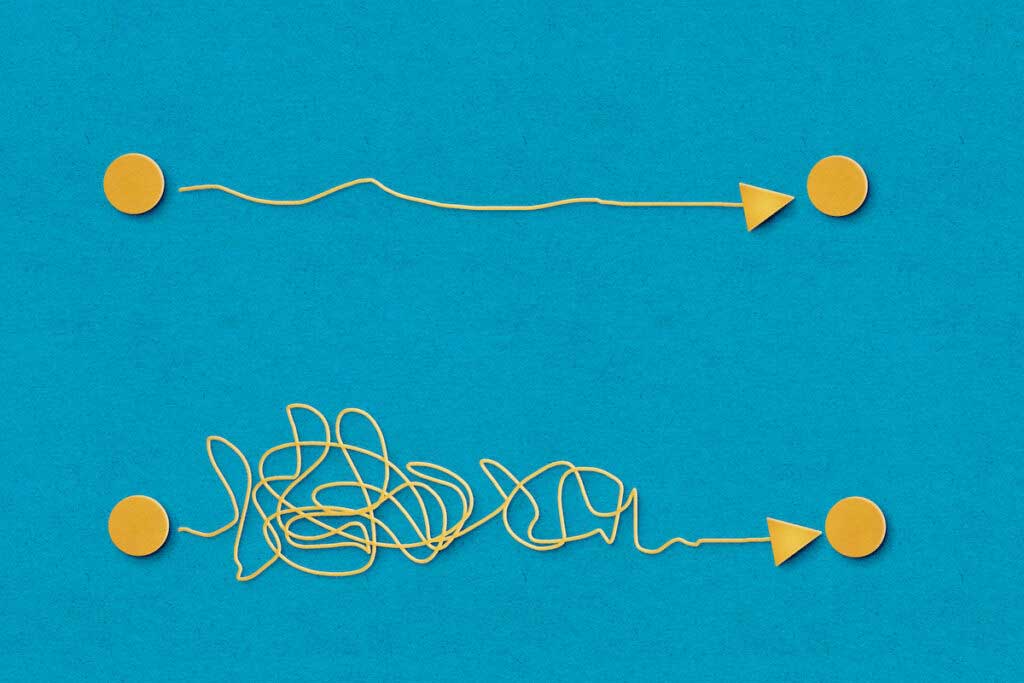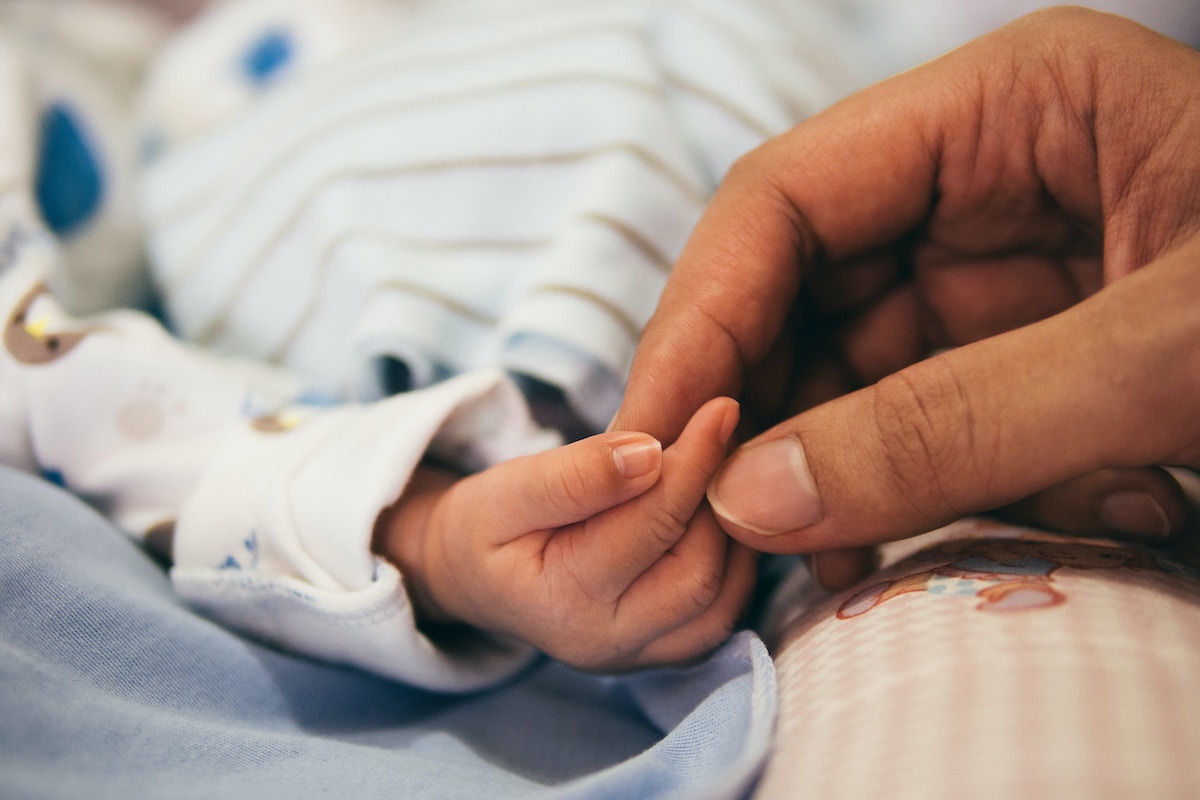Before you read on: This essay describes someone’s traumatic birth experience, and may be difficult for some people to read. If this isn’t for you today, please skip it. If you’d like to share your unexpected story in the private forum, please log in to view and comment.
It was a hot Saturday in August, the kind of day where as soon as you step outside, it’s difficult to take in a full breath. I sat on the couch, staring aimlessly at the television as my husband and family milled about the house. A baby was crying somewhere in the distance. My mom walked into my line of vision with the crying baby asking if I wanted to feed him. I shuddered, trying to clear the brain fog. Right, the crying baby was mine. I had a baby. We were finally home with our baby. I was a mom.
No, I didn’t want to feed him. No, I didn’t want to hold him. I wanted to continue to stare into space and wonder how everything had gone so wrong. I wanted to sink into the couch and disappear. But that was too scary to explain, especially to a room full of people who were just happy to see me alive. So I took the bottle and fed my baby.
I had everything I’d spent the past nine months hoping for, but I had never felt so empty, so wrong. Maybe if I could just pinpoint the moment everything fell apart, the moment my world turned upside down, I could finally make it make sense. I could finally feel better.
It was a Wednesday, July 17. I woke up after my second night in the hospital and was dilated to 8 centimeters. By midday, I was finally at 10. As my OB-GYN left the room to prepare for the birth, I turned to my nurse and told her I wasn’t feeling well. This was the moment of impact. This was the exact point in time when my life split into a before and after. Quickly after stating I didn’t feel well, I told my nurse something was very wrong and then I screamed, “Something is wrong with my heart!” seconds before I went into cardiac arrest and a code blue was called.
My room filled with medical professionals, and my husband was pushed to the back corner as they began CPR and rushed me to the OR. My son was delivered as CPR continued. He was quickly resuscitated and taken to the NICU. I was not alive for the birth of my son. I was experiencing an amniotic fluid embolism, a rare and often fatal obstetric complication. Over the next 12 hours, a team of OB-GYNs, trauma surgeons, cardiologists, nurses, techs, and blood bankers worked tirelessly to save my life.
After another cardiac arrest, extracorporeal membrane oxygenation (ECMO), an emergency hysterectomy, and more than 140 units of blood product, I was stabilized enough to be transferred to a medical center that was able to maintain the ECMO circuit and continue my care. I would require three additional abdominal surgeries and an Impella heart pump to survive. I met my son five days postpartum. I have no memory of it.

I spent 14 days in the ICU before I was discharged home. I thought we would sail off into the sunset as a family of three. I survived something I shouldn’t have. Doctors and nurses were visiting my room each day in awe that I was alive, let alone cognitively intact. They reminded me of the miracle I was and how far I’d come in such a short amount of time. I felt like a superhero.
Then we went home, and the realization of all that had happened and the permanency of its impact hit me. I was still recovering physically, with open incisions as well as several blood clots, but now I had a baby to bond with and take care of. This was so far from what I had imagined, and it would be the only experience I would ever get to have. I’d already missed so much, and I continued to miss it even as it was happening right in front of me. I couldn’t stop reliving the ICU. I couldn’t stop ruminating on what I could have changed, what I could have done differently to alter the outcome. I was angry and sad, and then consumed by guilt for feeling anything other than gratitude. I was one of the lucky ones. I was one of the ones who got to stay, who was given the chance to be a mom. Why couldn’t I just be happy?
Although I am a therapist who regularly helps clients navigate the complexities of life after trauma, in these moments, I felt lost. I soon realized with the help of my own therapist that I was trying to drown myself in gratitude and positivity. I needed to make space for all of my emotions, exactly as they were. I needed to lean into the duality and complexity of these feelings after birth trauma. I could be grateful that I survived and also devastated that this happened to us; these feelings are not mutually exclusive. I inherently knew this as a therapist, but I couldn’t access it as a birth trauma survivor.
This practice of accepting my feelings without judgment and leaning into self-compassion was the first and most important step in my healing journey. As we always say in the therapy room, you can’t heal what you don’t feel.
I also realized I had to forgive my past self. I had to forgive the version of myself who sat on that couch staring into space, who resented feeding her own baby. I had to forgive the version of myself who was just trying to survive in a world she no longer recognized, a world she could no longer tolerate. For so long, I blamed her for missing out on time with her son. I blamed her for making everything harder than it needed to be. Until one day, I realized she was just doing the best she could with what she had at the time and, more than that, she’s the reason I’m where I am today. She’s the one who suffered through postpartum so that I could be here, with a heart that’s barely able to contain the gratitude and joy as I watch my 4-year-old run around the bases at his T-ball game.
The tears prick at the back of my eyes, and I know it’s not the freezing winds of a T-ball season that starts much too early but the reminder of how far we’ve come and how far we still get to go. It’s a reminder that I get to be a mom, that I get to watch Callahan grow up. Birth trauma may have taken our initial days together, and those I will always grieve, but now we get the years.
Birth trauma is a subjective experience. It is an autonomic response of the nervous system, similar to an alarm being tripped in the brain, often set off by a perceived threat to safety. It is not a choice. Birth traumas vary greatly in their cause and presentation. My story is only one example.
Your birth experience did not need to have been life-threatening or complicated for it to have been traumatic. Your birth story, whatever it may be, is valid. Your experience deserves to be held and grieved.
It was not your fault. It does get better. This is not your forever.

Do you have an unexpected story? Join us in a private room in the ParentData Village to share it and connect with other readers.
















Log in
My first birth was an emergency c-section when they couldn’t find the heartbeat. I was put under and don’t have any memories of the birth. I was devastated and have felt like there’s a hole in my birth story that can never be filled. It’s really hard for people who haven’t gone through this to understand the emotions surrounding this type of event, especially when the baby is healthy and thriving after birth.
We got pregnant again when my son was 1.5 years old. I miscarried at 12 weeks. It was considered ‘normal’ and probably due to ‘natural’ causes and that I should be ‘glad it terminated because of DNA complications’ but I was so sad. I kept having these feelings and thoughts that I knew didn’t make logical sense. I didn’t want to have a D&C because I needed to keep the baby warm. I’m still grieving the loss and have a sense that the baby still needs to be cared for. I’ve done therapy for this and am more at peace, but also embracing the feelings that will always be there.
These two events have changed who I am, in both good and difficult ways. Sending so much love to everyone in this thread.
I had a massive postpartum hemorrhage exactly 8 years ago and I cannot thank you enough for sharing your story. I feel exactly how you feel. Sending you the biggest virtual hug.